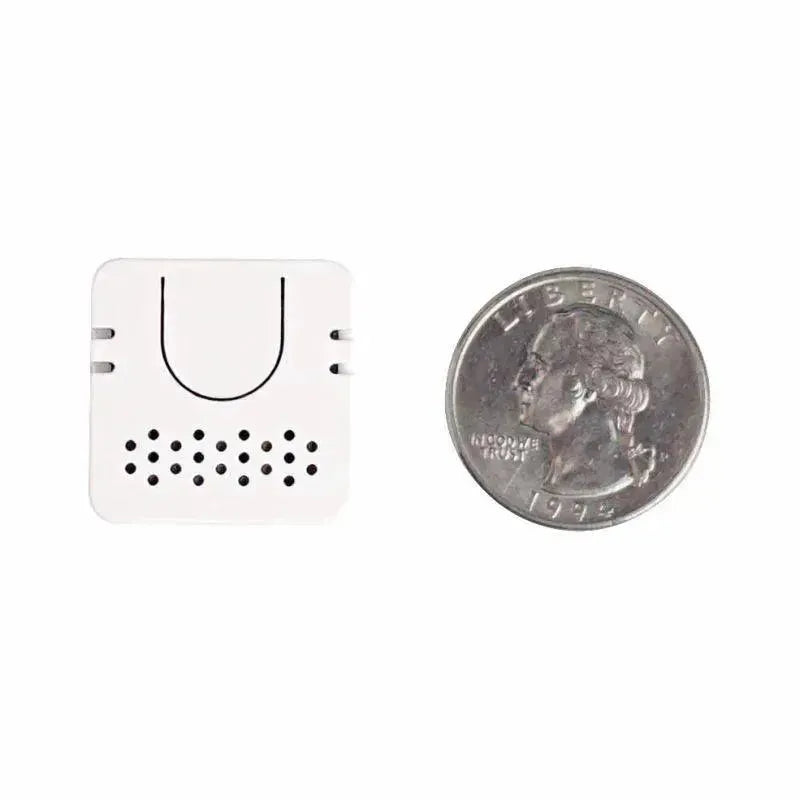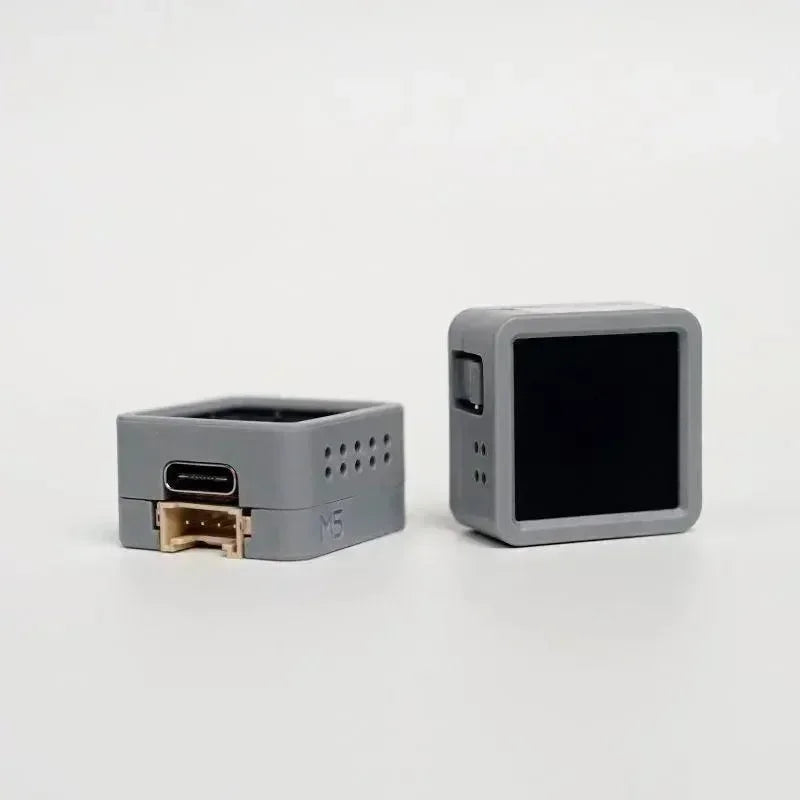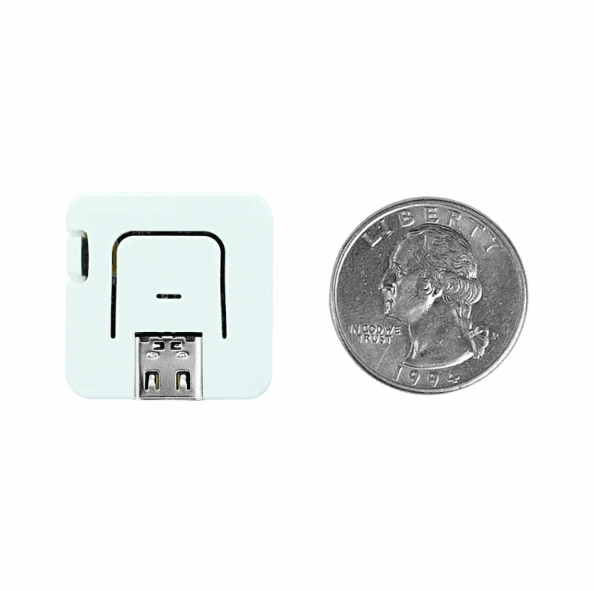The M5Stack ATOM series modules are known for their compact size, powerful functionality, and ease of development, making them suitable for a variety of IoT projects. Below is a detailed analysis of the ATOM Echo, ATOM Lite, ATOM Matrix, ATOM U, and ATOMS3 to help users choose the most suitable module for their needs.

ATOM Echo
- Designed for Voice Applications: featuring a built-in microphone and speaker to facilitate voice recognition and interaction.
- Dual Wi-Fi and Bluetooth Support: enabling seamless connectivity to cloud services for smart voice assistants and IoT control.
- Compact and Portable: well-suited for home automation and voice control prototypes.
ATOM Lite
- Lightweight Module for Beginners: Built on the ESP32 platform with GPIO support, facilitating seamless integration with sensors and actuators.
- Cost-Effective and Suitable for Bulk Applications: Ideal for educational applications and straightforward data-gathering initiatives, such as monitoring temperature and humidity.
- Abundant Development Resources: The product is designed to be compatible with Arduino, UIFlow, and other programming environments, thereby facilitating the onboarding process for new developers and reducing the learning curve.
ATOM Matrix
- LED Matrix for Visual Display: The 5x5 RGB LED matrix is well-suited for displaying status indicators, conveying information, and controlling lighting.
- Great for Creative Projects: It is often used in wearable devices, interactive art installations, and notification systems.
- I2C Communication Support: The system seamlessly integrates with various modules and sensors, enhancing the interactivity of your projects.
ATOMU
- USB OTG Support: Functions as a USB host or device for developing USB communication projects.
- Flexible USB Applications: Suitable for developing USB drivers, connecting storage devices, or data exchange tasks.
- Compact and Expandable: Perfect for embedded projects that require USB communication.
ATOMS3
- Powered by ESP32-S3 with Enhanced Performance: Supports Wi-Fi 6 and BLE 5.0, ideal for complex IoT applications and edge computing.
- AI Inference Support: Provides AI computing power for high-performance tasks such as image recognition and voice processing.
- Multiple Development Interfaces: Includes I2C, SPI, UART, and more, offering extensive options for hardware integration.
Product Features
| Product Name | Chip | Key Features | Display/Extension | Interface Support |
| ATOM Echo | ESP32 | Voice recognition, voice playback | None | Grove, UART |
| ATOM Lite | ESP32 | Lightweight development module | None | Grove, GPIO |
| ATOM Matrix | ESP32 | LED matrix status display | 5x5 RGB LED | Grove, I2C |
| ATOM U | ESP32 | USB OTG extension | None | USB OTG, UART |
| ATOM S3 | High-performance AI IoT support | None | I2C, SPI, UART |
Which one is most suitable for me?
| Product Type | Key Advantages | Application Scenarios | Suitable Users | Suggestions for selection |
| ATOM Echo | High-sensitivity microphone and speaker; perfect for voice assistant development. | Smart home voice assistants and home automation. | Audio developers and voice control project makers. | Development of a voice assistant program |
| ATOM Lite | Simple, cost-effective; ideal for learning and bulk deployment. | Teaching, prototyping, and IoT beginner projects. | Beginners in IoT and educators. | Learn IoT development or simple monitoring projects |
| ATOM Matrix | RGB matrix offers versatile visual effects; suitable for wearable devices and displays. | Wearables, DIY projects, and interactive displays. | Makers and creative designers. | Projects that require status indicators and light displays |
| ATOMU | USB OTG support enables flexible USB peripheral development. | USB device communication and quick prototyping. | USB peripheral developers and hardware engineers. | Involves USB communication development |
| ATOMS3 | AI inference support and Wi-Fi 6 capability; suitable for high-performance projects. | Industrial automation, AI-based applications, and edge computing. | Developers focused on AI and advanced IoT projects. | Complex IoT applications and AI projects |
FAQ
What does an echo do?
The device uses Wi-Fi and Bluetooth to connect with cloud services, making it an ideal choice for smart home applications like:
- Voice assistants: It can act as a node for services like Alexa or Google Assistant.
- Home automation: Control home appliances through voice commands.
- Notification systems: Provide real-time audio alerts or reminders.
- IoT voice controllers: Use it to operate sensors and devices by voice.
What is an echo in physics?
In physics, an echo is a reflection of sound that arrives at the listener after bouncing off a surface, such as a wall, building, or mountain. This phenomenon occurs when a sound wave travels through a medium (like air), reflects off an obstacle, and returns to the source or another point where it is heard.
How Echoes Work
- Sound Wave Emission: A source (such as a person shouting) emits sound waves.
- Reflection: The sound waves hit a surface (like a wall or a canyon) and bounce back.
- Reception: If the reflected sound reaches the listener with a delay (usually over 0.1 seconds), it is heard as a distinct echo.
Key Factors for an Echo to Occur
- Distance: The reflecting surface needs to be far enough (typically more than 17 meters or 56 feet) from the source, allowing the sound to travel back with a noticeable delay.
- Reflection Surface: The surface should be hard and smooth (e.g., a cliff, or a large building) to reflect sound waves effectively.
- Medium: Echoes travel more effectively through air but can also occur in other mediums like water (e.g., underwater sonar).
Applications of Echo in Physics
- Sonar: Used by ships and submarines to detect objects underwater by sending sound pulses and measuring the time for echoes to return.
- Echolocation: Animals like bats and dolphins use echoes to navigate and find prey.
- Ultrasound: Medical imaging uses high-frequency sound waves and their echoes to create images of organs and tissues inside the body.
























































































